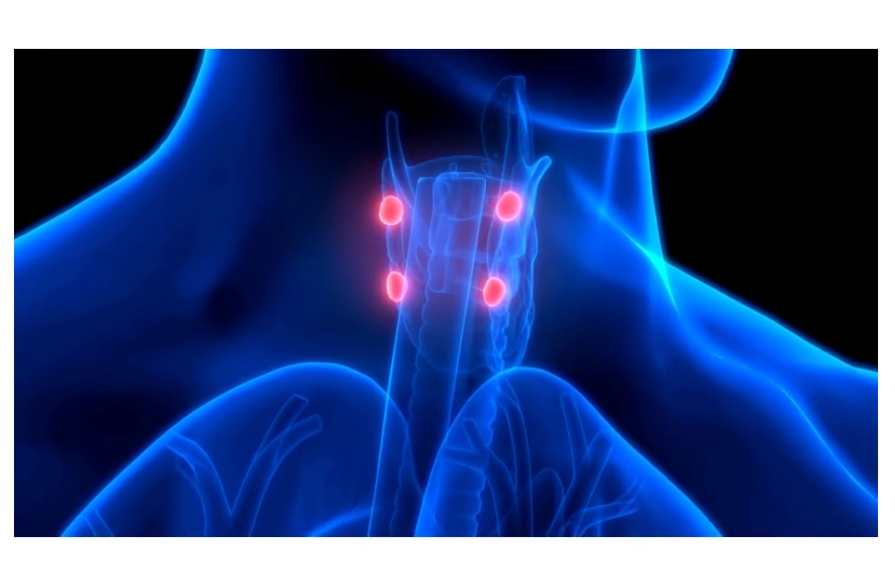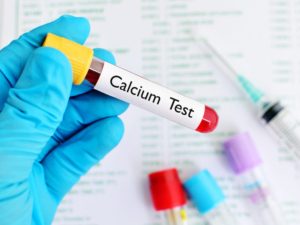Hyperparathyroidism: Important word to know if you have high calcium
Did you know that there’s an estimated 1-7 cases of hyperparathyroidism per every 1000 people? The Journal of Clinical Endocrinology & Metabolism reports that “Primary hyperparathyroidism (PHPT) is a relatively common endocrine disorder… It is believed to be the most common cause of hypercalcemia, predominantly affecting elderly populations and women two to three times as often as men.” (2013) Despite this statistic, many are unaware of the causes, effects, and cures for this condition. Continue below to see how you can be proactive about your parathyroid health. You might just find that your tendency to feel sluggish isn’t because of an imbalance of caffeine, but calcium.
What Causes Hyperparathyroidism?
Before we can dive into the symptoms and cures of hyperparathyroidism, it’s important to understand the parathyroid glands. The four parathyroid glands reside in your neck behind your thyroid. They are the only organs that we have four of and are responsible for drawing calcium into your bones and bloodstream when you need it. They also let calcium out of your body by pushing it through your kidneys daily. It seems like a small job, but your parathyroid affects many elements of your physical and mental health. When one or more of the parathyroid glands becomes overactive, it releases too much parathyroid hormone (PTH). The excess PTH draws in an unhealthy amount of calcium into your bloodstream. This condition can lead to anything from chronic fatigue, anxiety, memory loss, and depression to high blood pressure, kidney stones, and bone loss. Because of this, it’s very important that you’re aware of the symptoms to look out for.
Symptoms
The symptoms of the unhealthy parathyroid gland(s) can be subtle and often go ignored. Many patients don’t realize they are suffering from hyperparathyroidism until they get the high calcium results from a routine blood test. Although sometimes high calcium (calcium above 10 mg/dl) is only temporary, an additional blood test should be taken to measure the Parathyroid Hormone (PTH) level. If the calcium and PTH tests are normal, then you do not have hyperparathyroidism, but you should stay updated on your calcium and PTH levels as a small change can lead to big differences in your well-being. If your calcium and PTH levels are high, you almost certainly have hyperparathyroidism. Almost all parathyroid patients have symptoms; as for the ones who don’t, they typically don’t realize they were suffering until it’s fixed. Everyone experiences different symptoms of Hyperparathyroidism. The most common are chronic fatigue, body aches, difficulty sleeping, bone pain, memory loss, poor concentration, depression, and headaches. Be consistently aware of the possible symptoms your parathyroid health could be causing. A small procedure just might end a lot of your suffering.
What Can I Do?
The good news about hyperparathyroidism is that there is a highly effective cure. Parathyroid Atlanta’s minimally invasive surgical techniques make recovery an easy process. What was once a life-threatening health problem can be removed with minimally invasive radio-guided parathyroidectomy (MIRP) surgical techniques. With MIRP, the operation occurs through about a one-inch-long incision, and it takes about 30-60 minutes. In most cases, the parathyroid gland that’s causing issues has been identified, but all four glands are still tested during the procedure. If any other glands are overactive, they are removed during the operation. If you believe you could be silently suffering from hyperthyroidism or want more information, please give our office a call. We would be more than happy to get you into our office so you can get on top of your parathyroid health. Don’t suffer in silence, get your calcium and PTH levels checked today.





